- Occupational Therapy -
Occupational Therapy
- Occupational therapy is a kind of therapy that helps people do things that they want or need to do in their daily life. These things can be different for different people, such as eating, dressing, playing, working, or learning.
- Occupational therapy can be very helpful for children who have autism or other developmental disorders. These children may have problems in many areas, such as: Sensing things: Some children may feel too much or too little of what they see, hear, touch, smell, taste, or move. This can make them feel scared, angry, or avoid things.
- Occupational therapists can help them to control their senses and deal with things better by giving them the right kind of sensory input and activities.
- Moving things: Some children may have trouble in moving their body or using their hands. This can affect their walking, running, jumping, balancing, grasping, writing, drawing, or cutting. Occupational therapists can help them strengthen their muscles, improve their posture, increase their movement range, and coordinate their eyes and hands by giving them exercises and tasks that challenge and stimulate their movement.
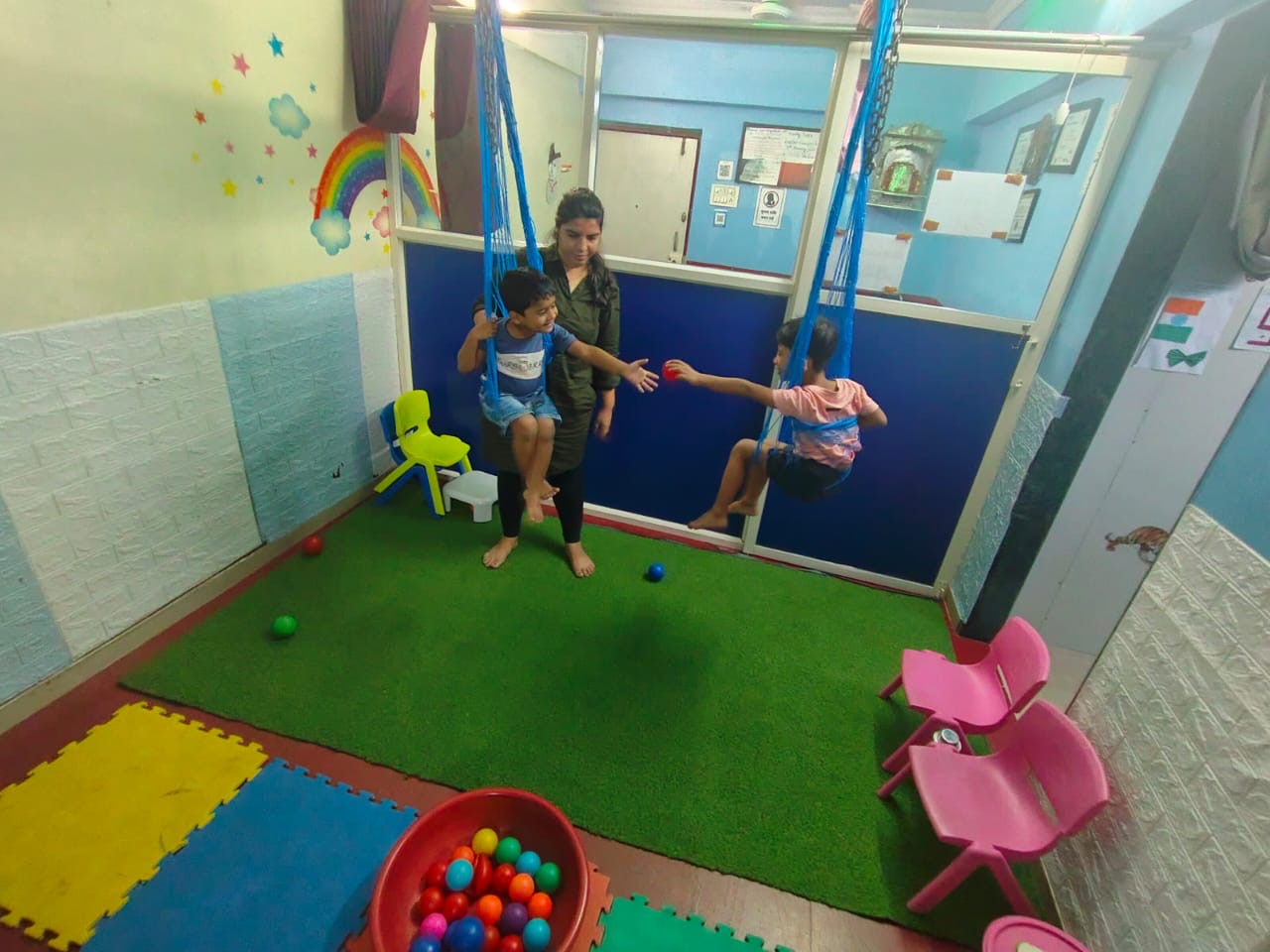
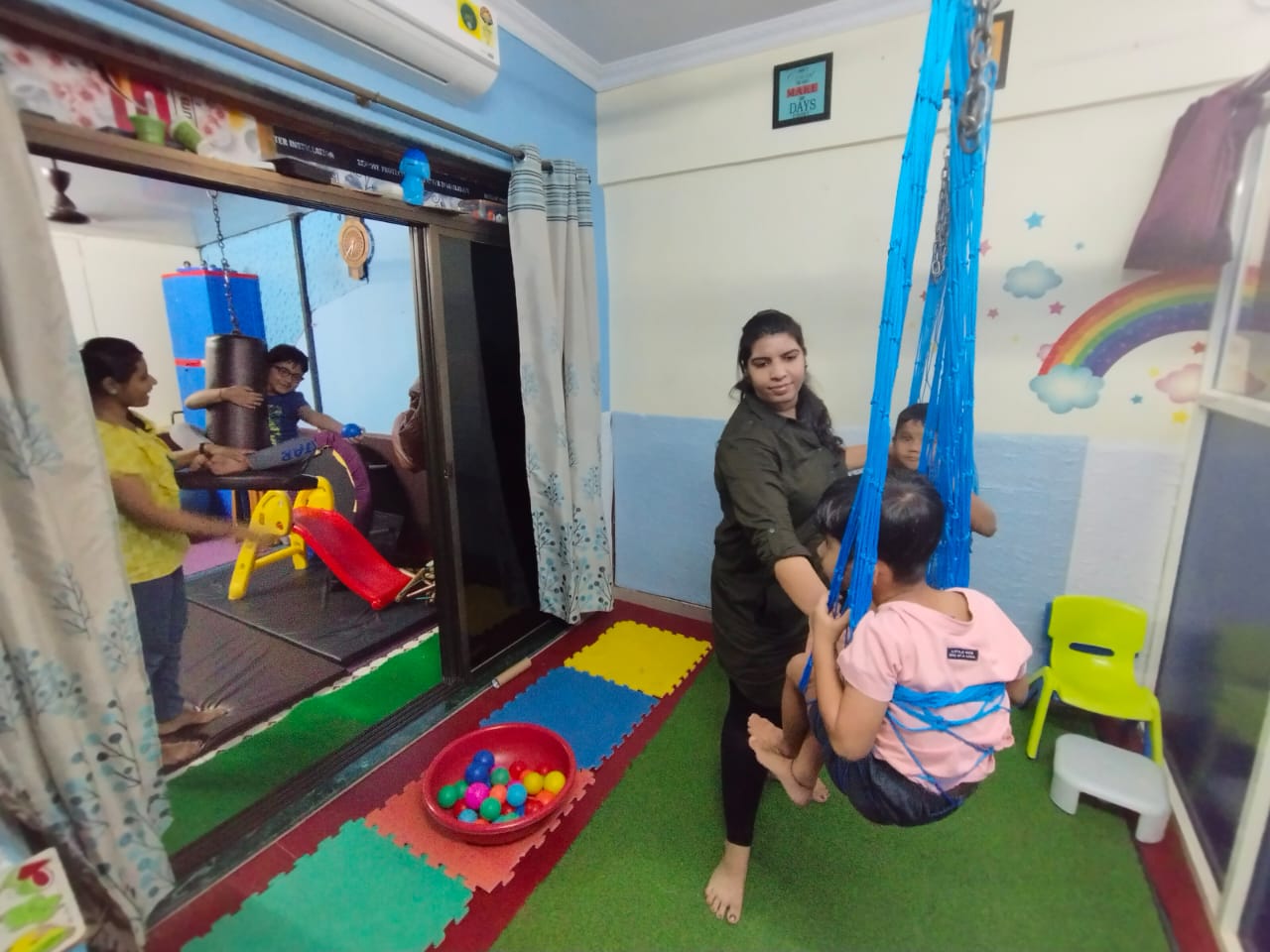
- Talking to people: Some children may have trouble in understanding and expressing themselves to others. This can affect their eye contact,
emotions, turn-taking, sharing, cooperation, or friendship. Occupational therapists can help them to learn and practice their social skills by giving them chances to join in social situations and activities that are fun and meaningful. Occupational therapists can also teach them ways to cope with social problems, such as managing emotions, solving conflicts, or asking for help. -
Taking care of themselves: Some children may have trouble in doing things that they need to do for themselves and their personal needs. This can affect their dressing, grooming, eating, toileting, bathing, or sleeping. Occupational therapists can help them become more independent and confident by giving them tools (such as special utensils or clothing), changes (such as labels or cues), or steps (breaking down a task into smaller parts) that make these things easier for them.
- Having fun: Some children may have trouble in finding and doing things that they like to do for fun and enjoyment. This can affect their play and leisure activities. They may also have trouble in starting or keeping up play with others or using toys or materials creatively.
- Occupational therapists can help them expand their interests and choices by giving them a variety of play options that match their abilities and preferences. Occupational therapists can also help them improve their play skills by teaching them how to use toys or materials properly, how to follow rules or directions, how to join or lead a group activity, or how to cope with winning or losing.
In summary, occupational therapy is a type of therapy that helps people of all ages to perform everyday activities that are meaningful and important to them. For children with autism and developmental disorders, occupational therapy can help them improve their sensory processing skills, motor skills and coordination, social skills, independence in self-care activities, and play and leisure skills. Occupational therapy can also help children with autism and developmental disorders to achieve their goals, overcome their challenges, and participate fully in life.
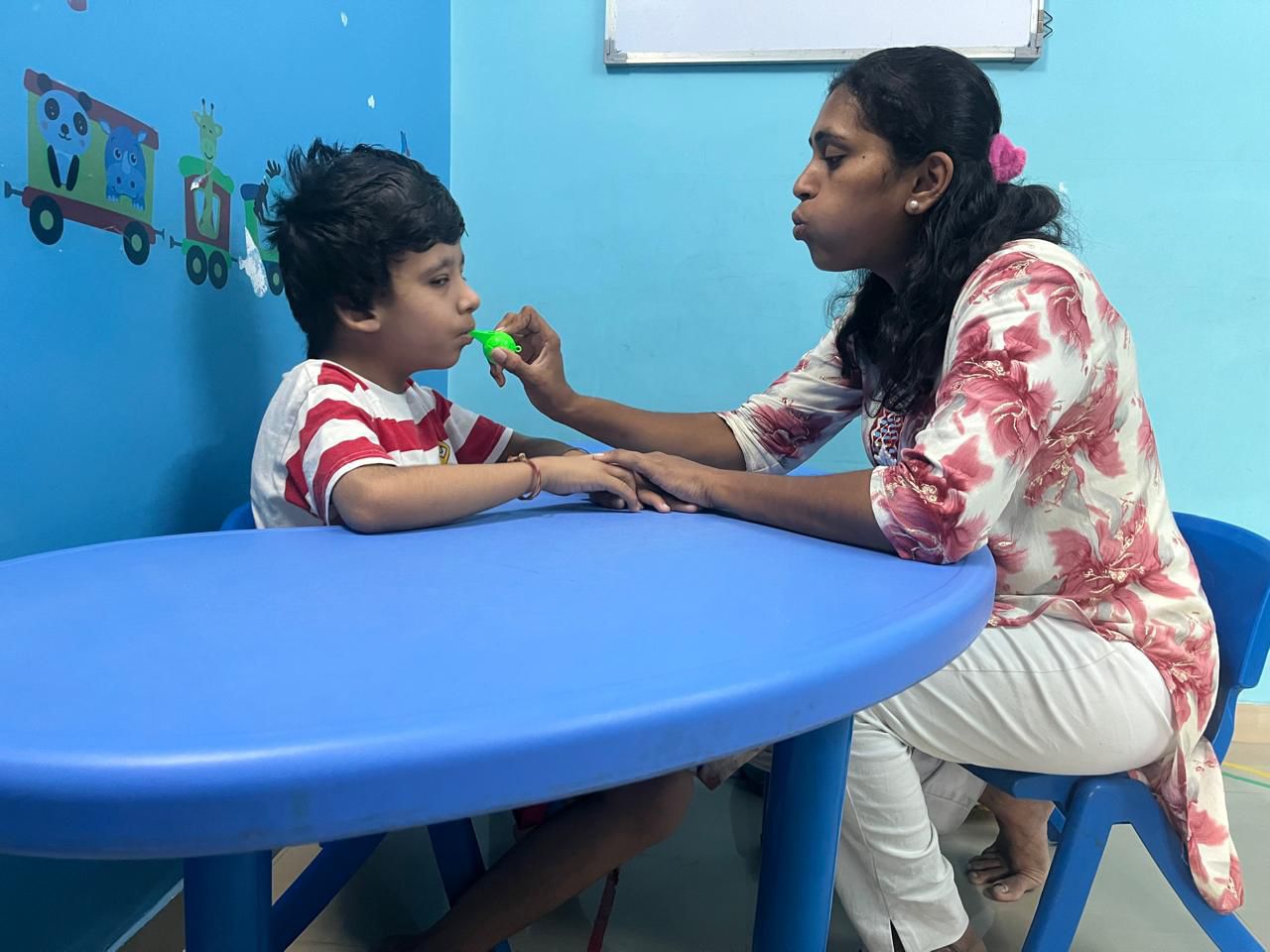
Speech Therapy
Speech Therapy helps children to speak, communicate, and understand language. Speech therapist helps to improve expressive and receptive language, communicate socially and manage swallowing difficulties. Speech therapy also helps in augmentation and alternative communication.
Special Education
Special education provides educational support to children with emotional, behavioural, social or intellectual impairments by customizing education to meet their learning needs, skills and interest. Children with autism, cerebral palsy, development delay, down syndrome benefit tremendously from special education.
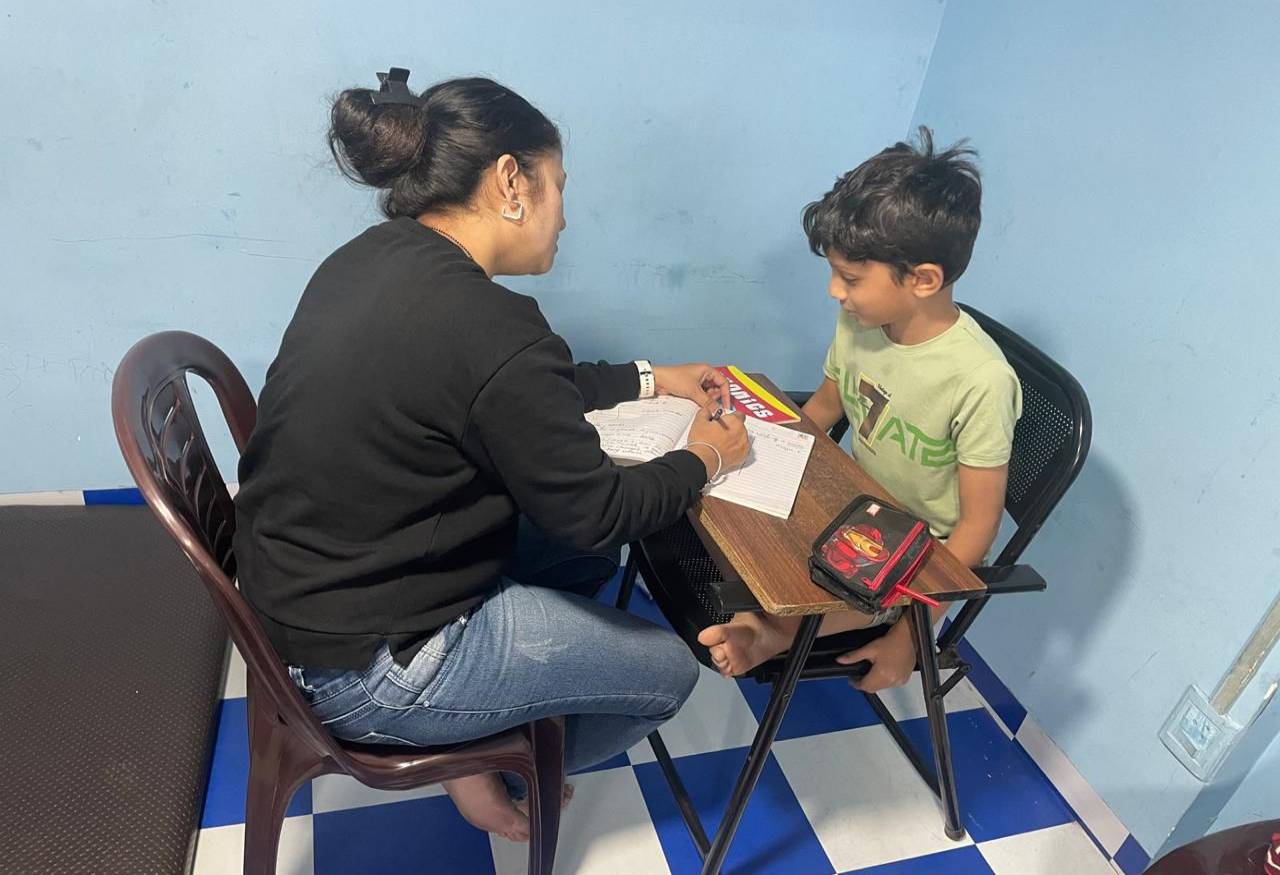

Remediation
Remediation helps children to cope with following skills: Reading, Writing, Comprehension, Receptive and Expressive language, Cognition, Memory, Executive Skills, Enhances academic skills to cope with school portion. Remediation is helpful for children diagnosed with Learning Disabilities, ADHD, ASD, Intellectual impairment but also for any child who wants to strength his/her Concept Clarity, Language Proficiency and Arithmetic Skills irrespective of any learning difficulty.
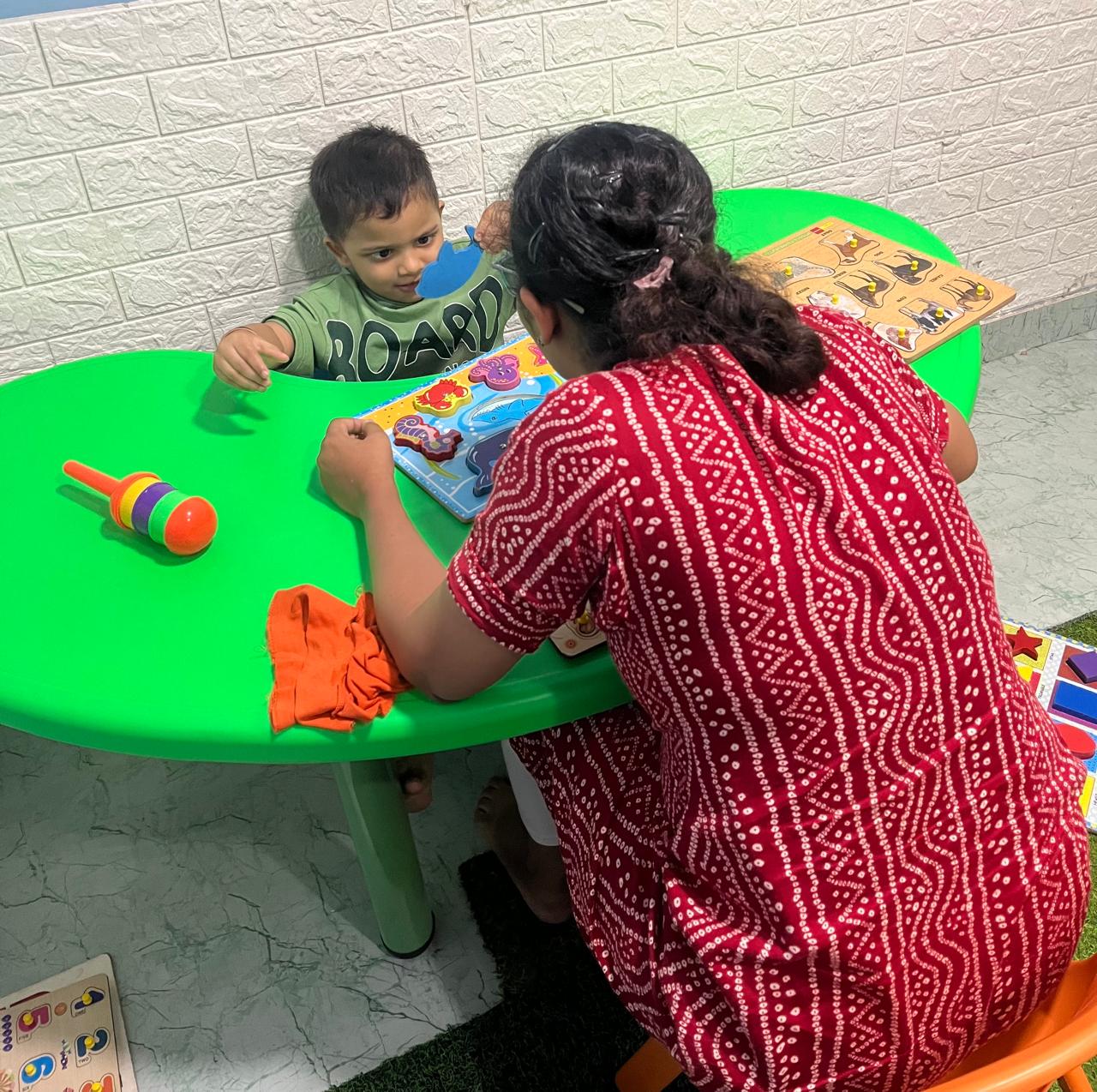
Counselling and Behavioural Therapy
Child counselling helps the child to understand their issues more clearly and have a better understanding of situations, fears, confusions, emotions. In Counselling following skills are developed: Organizational and planning skills, coping skills, emotional awareness and self-control and self-esteem. Behavioural therapy in children focuses on modifying negative or disruptive by reinforcing desired behaviour and reducing unwanted behaviour.
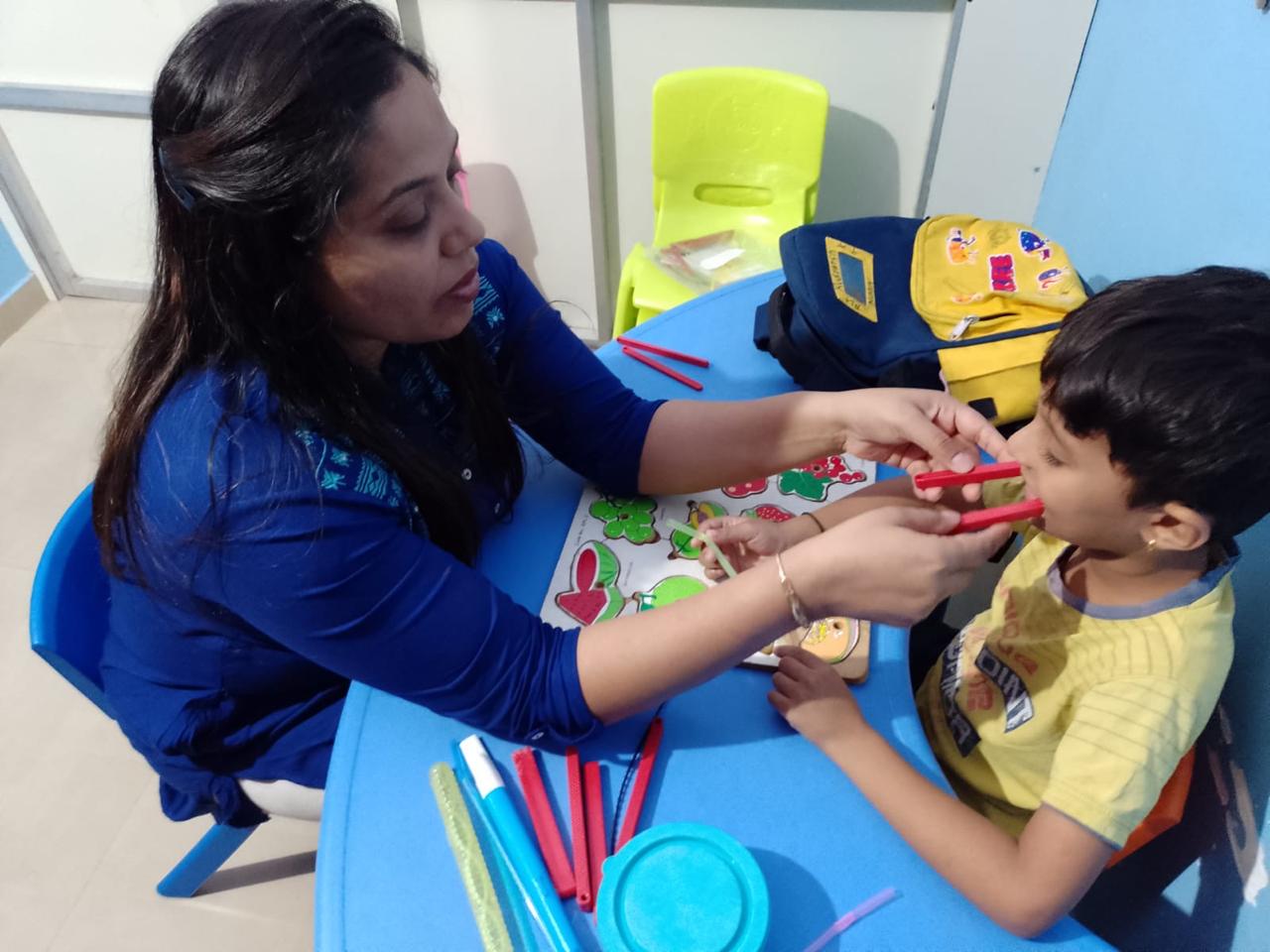
Oral placement Therapy ( OPT)
Oral Placement Therapy (OPT) is type of Speech Therapy that uses a combination of tactile, visual, and auditory stimulation to improve oral motor skills. Developing these skills is key to achieving speech clarity and proper feeding techniques. Oral placement Therapy focuses on the articular awareness, placement ( Jaw dissociation, grading and direction of movement) stability and muscle memory, using various tools and exercises to improve muscle strength co-ordination and sensory awareness. OPT is an important addition to traditional speech treatment methods for clients with placement and movement deficits.
